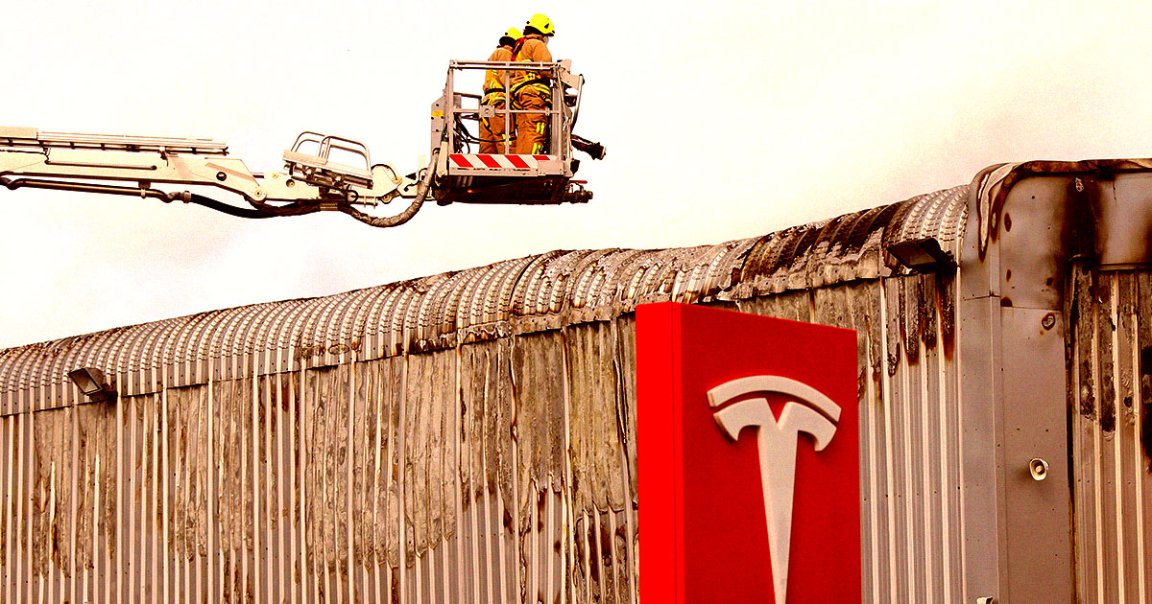
If a recent rally in the company’s share price is any indication, investors are buying Tesla CEO Elon Musk’s vision of leaning into autonomous driving and a robotaxi service.
The company’s shares rose almost four percent on Wednesday, despite the company revealing that it had sold 14 percent fewer cars in Q2 of this year compared to the same period last year, the biggest drop in Tesla’s history. Analysts were forecasting an even worse performance, indicating there’s still plenty of enthusiasm.
But the reality is rough. The company’s profits plummeted a whopping 71 percent in the first quarter of this year, showing there’s an unquestionably rough road ahead.
As of the time of writing, the company’s market cap is just shy of $1 trillion, making it the most valuable car company in the world — and by an enormous margin, with second place being Toyota, which is worth less than a quarter of Tesla’s valuation.
That’s despite experts gauging the company’s core business of selling cars as being worth far less than that, as the Wall Street Journal reports. Case in point, Morgan Stanley analyst Adam Jonas suggested it was worth less than $100 a share back in May. As of Thursday, the company’s value is north of three times that.
In other words, the company’s trillion-dollar valuation may be vastly overestimating its actual worth. But that’s depending on who you ask, and it’s a topic greatly complicated by the disastrous rollout of its robotaxi service last month.
As it has been the case for many years now, the company is still struggling to keep up with Musk’s characteristically overambitious promises. In May, the mercurial CEO vowed that there would be “hundreds of thousands, if not over a million” self-driving Teslas on US roads by the end of 2026.
The reality, however, looks far less impressive. The company’s long-awaited launch of its robotaxi service is leaving plenty to be desired. It’s currently geo-fenced to a tiny area of South Texas and requires human employees in the passenger seat to intervene if anything goes wrong. The program has already seen plenty of mayhem, leaving passengers stranded in the middle of intersections or seeing steering wheels wildly jerk back and forth.
Investors are still keen on keeping Tesla afloat, despite its flailing core business of selling cars, which has been massively impacted by Musk’s well-documented descent into far-right extremism.
Making matters worse is the billionaire’s rapidly deteriorating relationship with president Donald Trump, who recently threatened to deport him and cut him off from all subsidies, something that could have devastating consequences for the carmaker.
Meanwhile, Tesla has faced an exodus of executives, from longtime Musk aide and fixer Omead Ashfar, who parted ways last week, to the head of the company’s Optimus robot program.
In short, there are plenty of reasons to be highly skeptical of Musk’s claim that the stumbling robotaxi service could somehow add as much as $10 trillion to Tesla’s market cap.
And as sales continue to crater, autonomous driving could soon become the linchpin, propping up the EV maker’s enormous valuation.
It’s a major gamble, with the billionaire ditching plans to release a relatively low-cost $25,000 sedan, dubbed the Model 2, last year.
“It would be silly, like it will be completely at odds with what we believe,” Musk said of the affordable model at the time.
More on Tesla: Tesla Bros Are Begging Polymarket to Change the Rules So Elon Musk’s Disastrous Robotaxi Launch Doesn’t Lose Them a Ton of Money